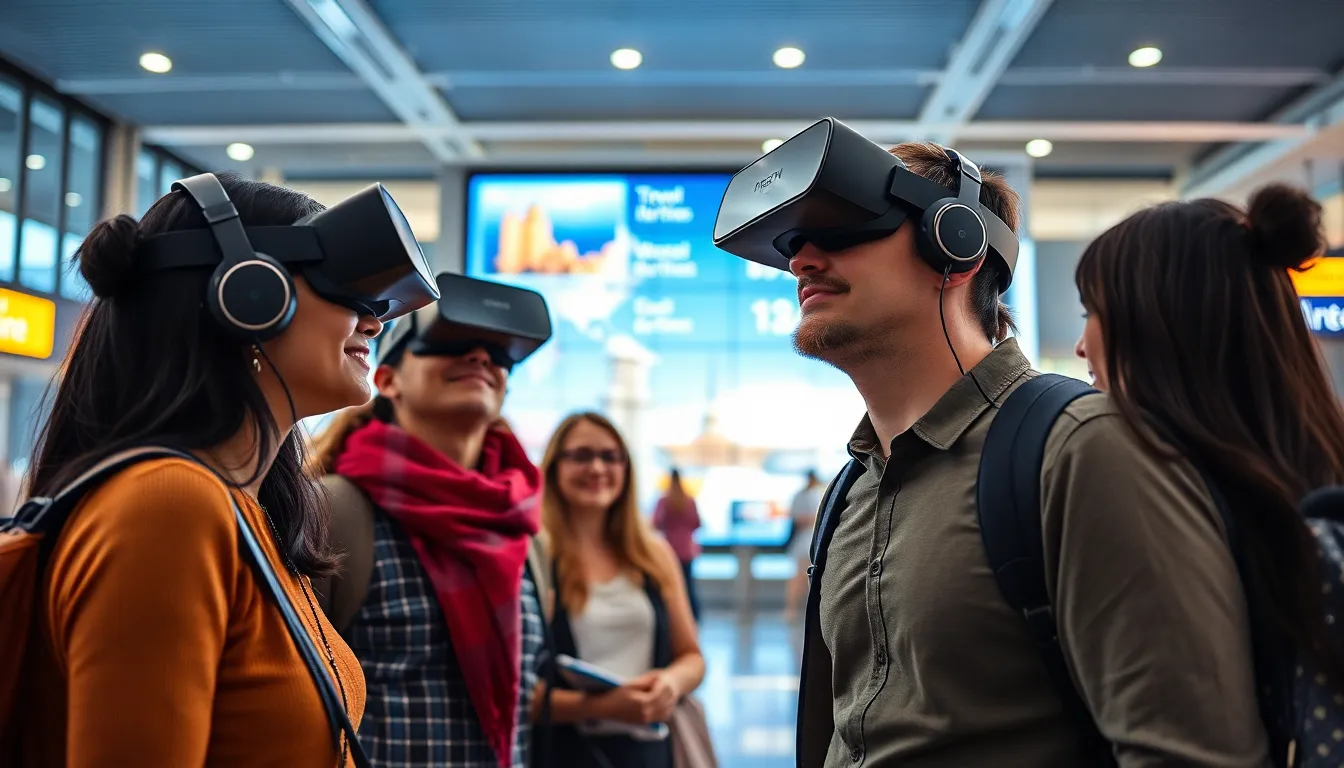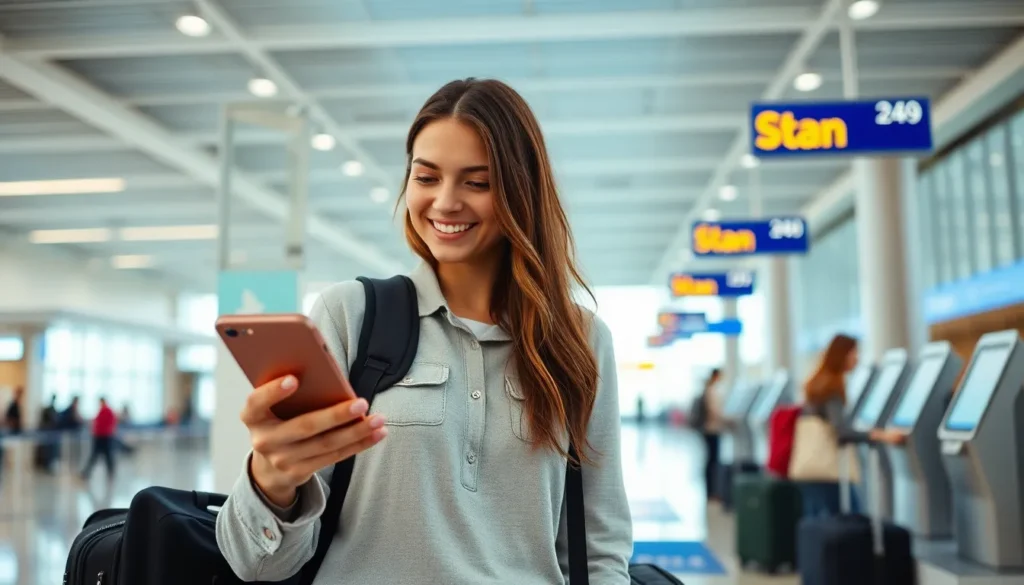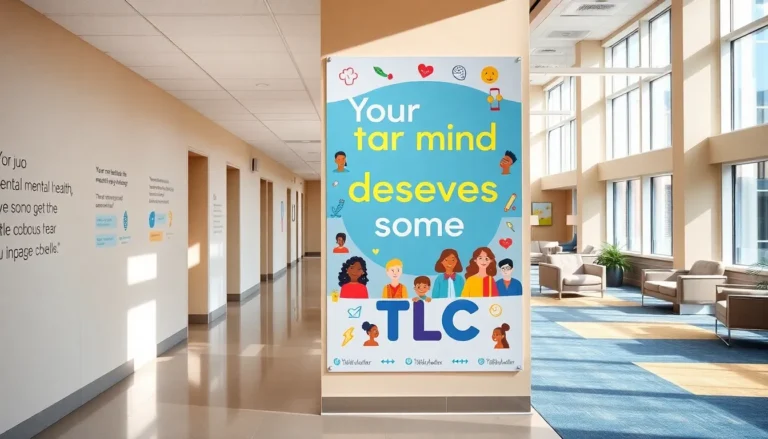Table of Contents
ToggleAs the world evolves, so does the way people explore it. The future of travel promises to be a thrilling blend of technology, sustainability, and personalization. With advancements in artificial intelligence, virtual reality, and eco-friendly practices, travelers can expect experiences that are not only more efficient but also more enriching.
Imagine stepping into a fully immersive virtual environment that allows you to preview destinations before booking a trip. Picture smart luggage that tracks your belongings and connects with your travel itinerary. As the industry adapts to the changing needs and desires of travelers, the possibilities seem endless. Embracing these innovations could redefine how people connect with the world around them, making travel more accessible and enjoyable than ever before.
Future of Travel: An Overview
The future of travel embraces technology, sustainability, and personalization. Advancements such as artificial intelligence (AI), augmented reality (AR), and eco-friendly practices reshape how individuals experience journeys. Travel becomes more efficient and enjoyable through these innovations.
Technological Innovations
- Virtual Reality Experiences: Travelers preview destinations using VR, allowing them to explore locations before booking.
- Smart Luggage: Luggage equipped with GPS tracking provides real-time location updates and ensures belongings remain safe.
- Mobile Apps: Apps enhance trip management by offering itinerary planning, language translation, and local recommendations.
Sustainability Efforts
- Green Accommodations: Hotels implement sustainable practices, including energy-efficient systems and eco-friendly products.
- Carbon Offsetting: Airlines and companies offer carbon offset programs, allowing travelers to invest in environmental initiatives.
- Sustainable Transportation: Evolving options like electric vehicles and high-speed trains reduce carbon footprints.
Personalized Travel Experiences
- Data-Driven Recommendations: Companies analyze traveler preferences to offer tailored suggestions that enhance experiences.
- Customized Itineraries: Travelers receive itineraries catered to their interests, ensuring unique and memorable adventures.
- Social Connectivity: Social media integration enables travelers to share experiences and find travel companions with similar interests.
Conclusion
Future travel anticipates seamless integration of technology with sustainable and personalized experiences. These elements create a travel landscape that emphasizes efficiency, enjoyment, and responsibility.
Emerging Technologies in Travel

Emerging technologies are reshaping the travel landscape, enhancing convenience and personalization for travelers. Innovations like artificial intelligence and virtual reality create new opportunities for exploration and enjoyment.
Artificial Intelligence and Its Impact
Artificial intelligence (AI) revolutionizes the travel sector by streamlining processes and personalizing experiences. AI-powered chatbots assist travelers 24/7, providing instant answers to queries about itineraries, local attractions, and accommodations. Predictive analytics helps companies anticipate customer preferences, leading to tailored recommendations and targeted marketing strategies. AI systems also optimize pricing strategies for flights and hotels, ensuring competitive rates. Companies like Expedia and Booking.com utilize machine learning algorithms to enhance user experiences and improve service efficiency.
Virtual Reality Experiences
Virtual reality (VR) offers immersive previews of travel destinations, enabling potential travelers to explore locales before booking trips. These experiences can simulate guided tours of historical sites, scenic landscapes, or bustling city streets. Some hotels and tour operators integrate VR in marketing strategies, giving customers realistic insights into offerings. Additionally, VR serves as a training tool for travel industry professionals, enhancing skills in customer interaction and service delivery. Companies like Thomas Cook and Marriott use VR to engage customers and create memorable marketing experiences.
Sustainable Travel Practices
Sustainable travel practices focus on minimizing environmental impact while enhancing traveler experiences. These initiatives create a positive effect on communities and ecosystems.
Eco-Friendly Transportation Options
Eco-friendly transportation options significantly reduce carbon emissions. Electric vehicles, hybrid buses, and high-speed trains serve as alternatives to traditional fuel-powered modes.
- Electric Vehicles: Charging infrastructure expands across many cities, making electric vehicle rentals more accessible.
- High-Speed Trains: Many countries invest in high-speed rail systems, providing efficient travel between cities without relying on planes.
- Bicycles and E-Scooters: Urban areas increasingly promote biking and e-scooters, encouraging short-distance travel without carbon footprints.
Green Accommodations and Practices
Green accommodations integrate sustainability into their operations. These practices not only attract eco-conscious travelers but also support local economies.
- Energy Efficiency: Hotels implement energy-saving technologies, such as LED lighting and smart thermostats, to lower their energy consumption.
- Water Conservation: Green accommodations often install water-saving fixtures and implement linen reuse programs, reducing water usage significantly.
- Sustainable Sourcing: Many hotels feature locally sourced food in their restaurants, supporting regional farmers and providing fresher options for guests.
- Carbon Offset Programs: Some establishments offer carbon offset options, allowing guests to contribute to environmental projects that counterbalance travel emissions.
By adopting these sustainable practices, the travel industry can work towards a more responsible and environmentally friendly future.
Changing Trends in Traveler Behavior
Traveler behavior is evolving rapidly, with a strong emphasis on personalization and new work paradigms influencing travel preferences. Key trends illustrate a shift towards tailored experiences and a blend of leisure and work during trips.
Preferences for Personalization
Travelers increasingly expect personalized experiences based on their interests and preferences. Data-driven technology facilitates customized itineraries that align with individual tastes. Online platforms analyze past travel patterns, suggesting activities, accommodations, and dining options that match users’ unique profiles. Additionally, interactive tools allow travelers to modify their plans seamlessly, ensuring the journey reflects personal desires. This shift enhances engagement, as tailored experiences lead to higher satisfaction rates among travelers.
The Rise of Remote Work Travel
Remote work has become a significant trend, reshaping how individuals approach travel. With flexibility in work arrangements, many professionals opt for “workations,” where they combine work responsibilities with leisure activities. Destinations are promoting themselves as ideal spots for remote workers, providing necessary infrastructure such as high-speed internet and co-working spaces. This trend leads to extended stays and increased spending in local economies while significantly altering peak travel seasons as more individuals choose to work remotely from diverse locations. As remote work continues to define travel, destinations will adapt to meet the needs of these modern travelers.
Global Challenges and Opportunities
The future of travel faces significant global challenges and opportunities. Health, safety, and economic recovery play crucial roles in shaping the industry.
Health and Safety Concerns
Health and safety concerns influence traveler confidence and shape policies within the industry. Enhanced hygiene measures and contactless technologies become standard protocols, helping mitigate risks. Many airlines and hotels implement rigorous cleaning routines, utilize air filtration systems, and offer mobile check-ins. Vaccination and testing requirements play important roles in travel plans, impacting destination selection and access. Additionally, the rise of travel insurance that covers health emergencies prompts more travelers to consider safety. Travel companies adapting to these new norms attract safety-conscious customers and foster trust.
Economic Recovery in the Travel Industry
Economic recovery in the travel industry hinges on adaptive strategies and innovative approaches. The pandemic severely impacted revenue streams, prompting businesses to rethink their models. Government support measures, including stimulus packages and grants, aid recovery efforts. Companies focus on domestic tourism to regain financial stability, with local attractions seeing increased interest. Investment in technology enhances operational efficiency, streamlining booking processes and improving customer experience. By leveraging data analytics, businesses can identify emerging trends and adjust their offerings accordingly. As recovery progresses, the sector can emerge more resilient, emphasizing sustainability and inclusivity while addressing evolving consumer preferences.
The future of travel is poised for remarkable transformation driven by technology and sustainability. Innovations like virtual reality and smart luggage are set to enhance the travel experience, making it more efficient and enjoyable. As the industry embraces eco-friendly practices, travelers can expect greener options that minimize their environmental impact while supporting local communities.
Personalization will be at the forefront, with data-driven insights creating tailored experiences that cater to individual preferences. As remote work continues to influence travel patterns, destinations are adapting to meet the needs of modern travelers. With a focus on health and safety, the industry is evolving to ensure confidence and comfort.
The journey ahead promises to be more accessible and enriching, paving the way for responsible travel that benefits both individuals and the planet.




